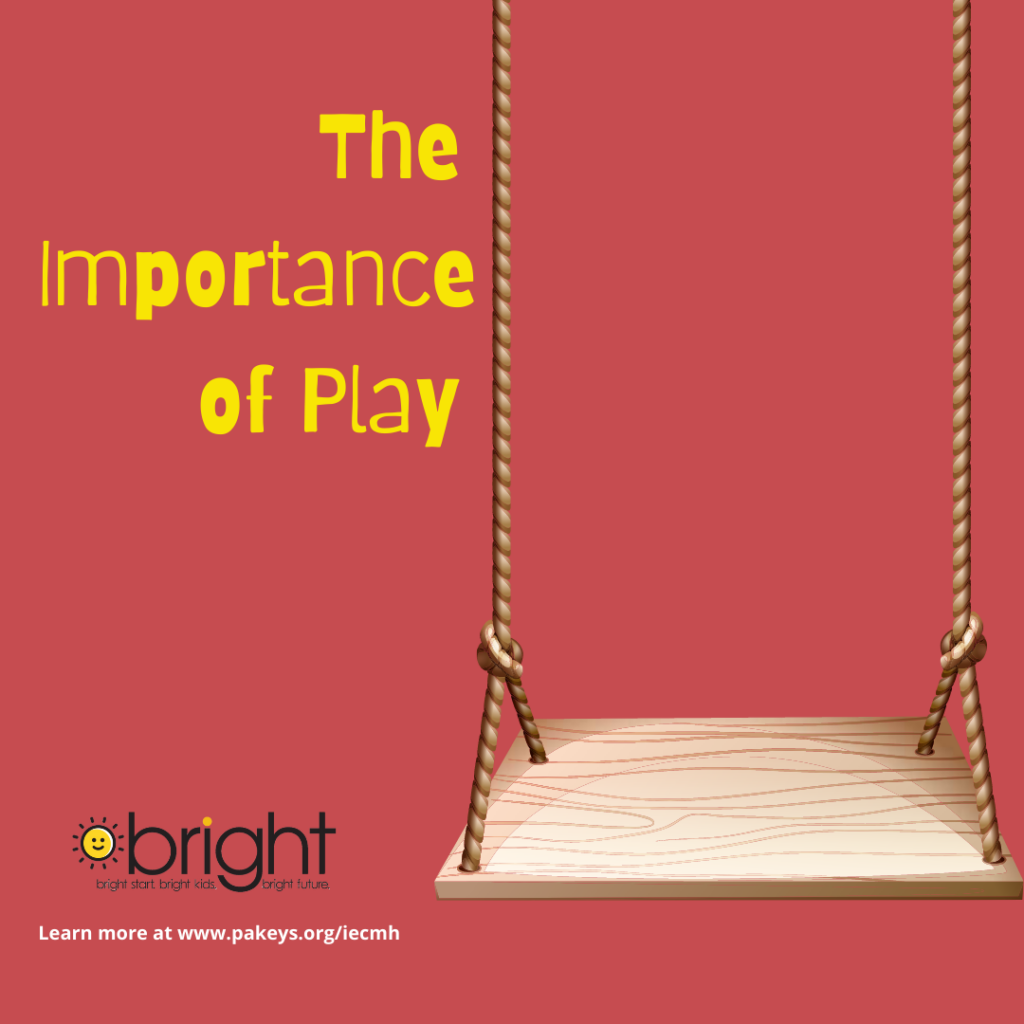
The Importance of Play
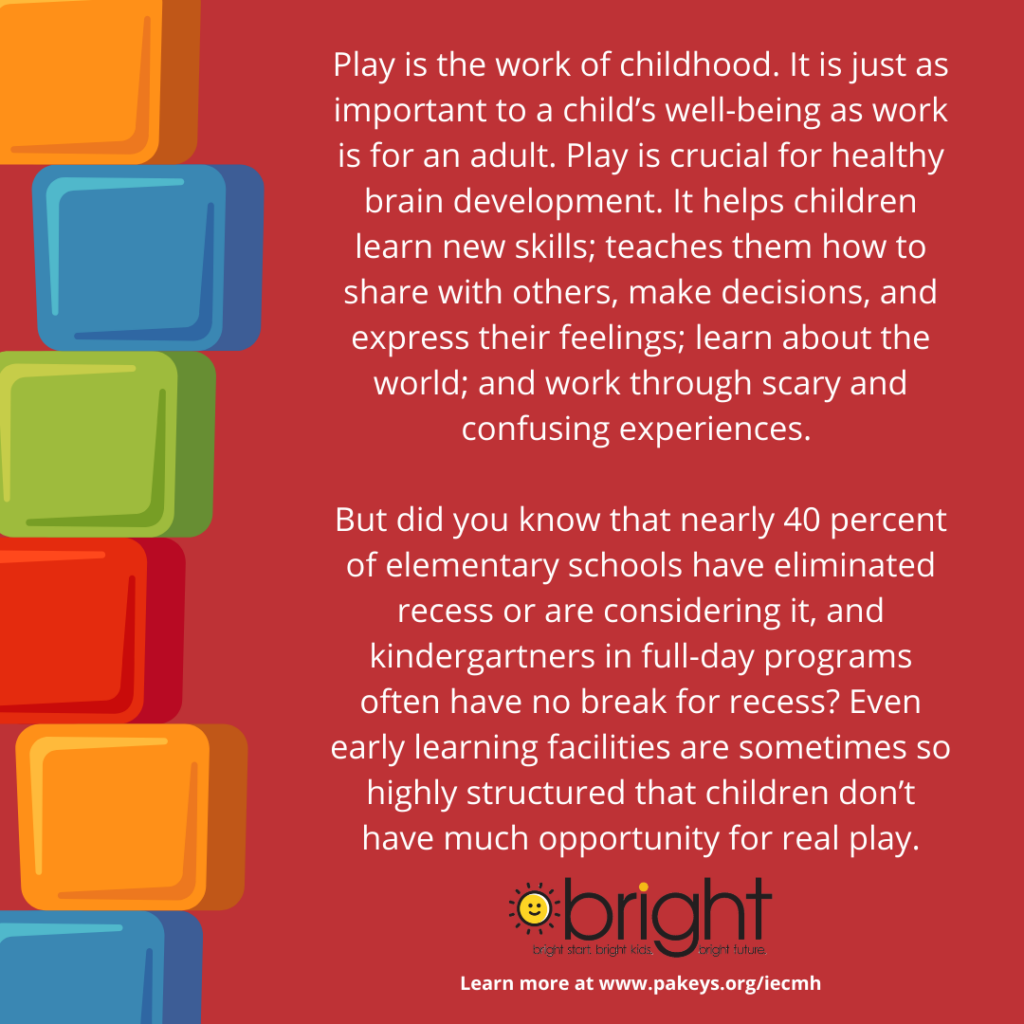
Play is the work of childhood. It is just as important to a child’s well-being as work is for an adult. Play is crucial for healthy brain development. It helps children learn new skills; teaches them how to share with others, make decisions, and express their feelings; learn about the world; and work through scary and confusing experiences.
But did you know that nearly 40 percent of elementary schools have eliminated recess or are considering it, and kindergartners in full-day programs often have no break for recess? Even early learning facilities are sometimes so highly structured that children don’t have much opportunity for real play
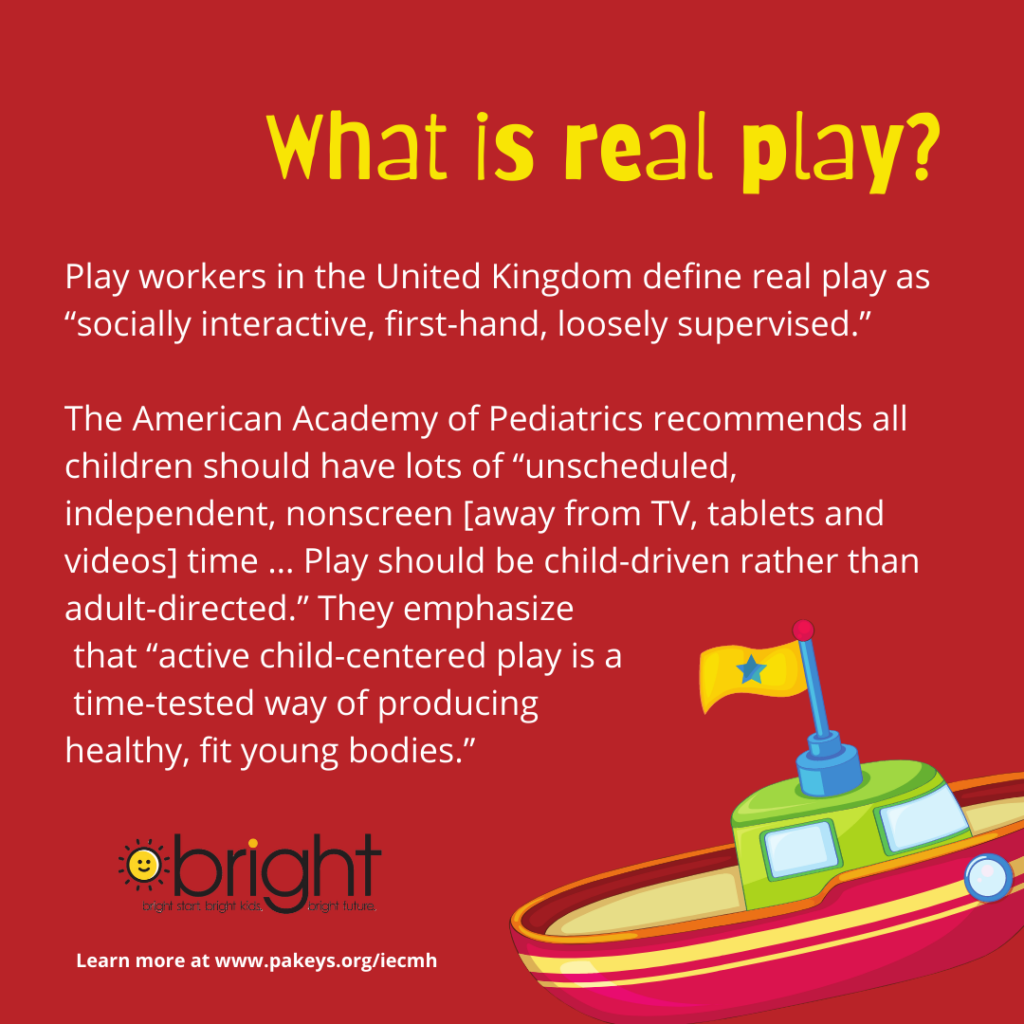
What is real play?
Play workers in the United Kingdom define real play as “socially interactive, first-hand, loosely supervised.”
The American Academy of Pediatrics recommends all children should have lots of “unscheduled, independent, nonscreen [away from TV, tablets and videos] time … Play should be child-driven rather than adult-directed.” They emphasize that “active child-centered play is a time-tested way of producing healthy, fit young bodies.”
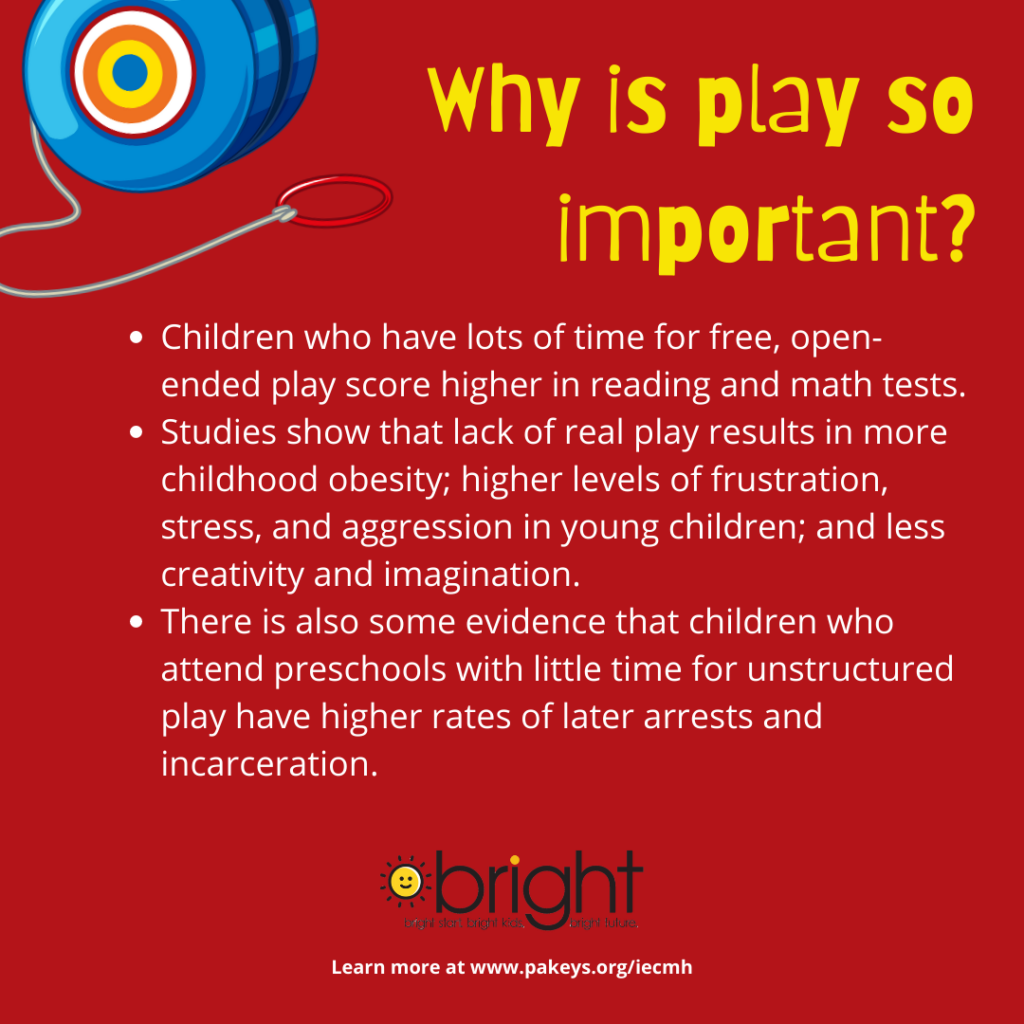
Why is play so important?
Children who have lots of time for free, open-ended play score higher in reading and math tests.
Studies show that lack of real play results in more childhood obesity; higher levels of frustration, stress, and aggression in young children; and less creativity and imagination.
There is also some evidence that children who attend preschools with little time for unstructured play have higher rates of later arrests and incarceration.
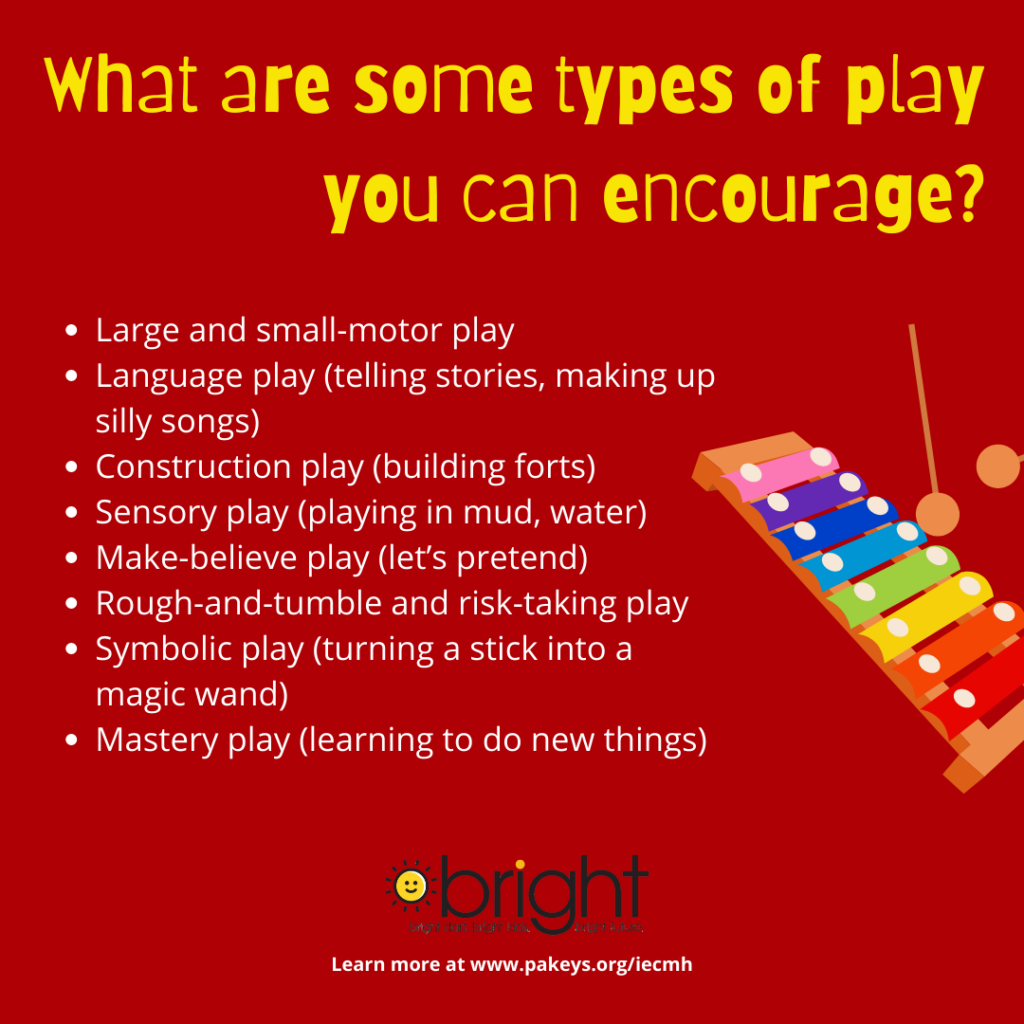
What are some types of play you can encourage?
- Large and small-motor play
- Language play (telling stories, making up silly songs)
- Construction play (building forts)
- Sensory play (playing in mud, water)
- Make-believe play (let’s pretend)
- Rough-and-tumble and risk-taking play
- Symbolic play (turning a stick into a magic wand)
- Mastery play (learning to do new things)
Resources
Call Pennsylvania’s CONNECT Helpline at 1-800-692-7288 for information about your child’s development and connecting to Early Intervention Services in Pennsylvania.
Get information about the Infant Early Childhood Mental Health Project.
